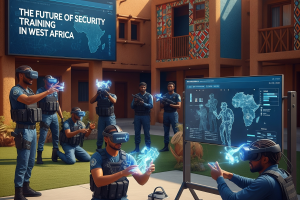
How to Choose the Right Security Course for Your Career
The security industry has grown far beyond the traditional role of a gatekeeper. Today, security professionals are frontline protectors of people, businesses, data, and national infrastructure. With this growth comes the need for specialized, certified training that matches career goals and industry demands.
But with so many courses available, the question is: How do you choose the right security course for your career?
At ISO-SEC FG Ghana Limited, we help individuals in West Africa align their training with both local opportunities and global standards. Here’s a guide to making the best decision.
1. Define Your Career Goals
Before choosing a course, ask yourself:
- Do I want to work in corporate security or general security?
- Am I interested in safety, fire prevention, or first aid?
- Do I aspire to work locally or gain international opportunities?
For example:
- If you want to work in corporate environments, Corporate Security Training is the best fit.
- If your goal is to specialize, courses like Fire & First Aid Training or Health & Safety will give you niche expertise.
2. Check for International Recognition
A certificate is only valuable if it is respected beyond borders. Many local courses offer training, but only a few provide globally recognized certification.
By choosing a course from ISO-SEC FG Ghana Limited, you gain credentials backed by ISO-SEC Switzerland, ensuring your qualification is trusted by international employers and organizations.
3. Consider the Level of Training
Different courses are designed for different stages of a career:
- Beginner Level: General Security Training – ideal for entry into the industry.
- Intermediate Level: Health & Safety, Fire & First Aid Training – adds specialized skills.
- Advanced Level: Corporate Security and Consultancy Training – for leadership and professional growth.
Choosing the right level ensures you are neither undertrained nor overwhelmed.
4. Look for Practical, Hands-On Learning
Security is not just theory—it’s about how you respond in real situations. The right course should include:
- Practical drills like emergency evacuations.
- Scenario-based learning such as conflict resolution.
- First aid simulations for real-life medical emergencies.
Hands-on training builds confidence and ensures you’re job-ready from day one.
5. Match Your Course to Industry Demand
Different industries in West Africa have unique security needs:
- Oil, mining, and construction → Health & Safety / Corporate Security
- Events and hospitality → Crowd Management / General Security
- Offices and corporate institutions → Corporate Security Training
- International travel or VIP protection → Advanced Security Certifications
Research the sector you want to work in and align your course accordingly.
6. Evaluate the Institution’s Reputation
Not all training providers are the same. Look for:
- Accreditation from international organizations.
- Experienced trainers with real-world expertise.
- Proven track record of placing students in security careers.
ISO-SEC FG Ghana Limited, as part of ISO-SEC Switzerland, guarantees credibility, world-class standards, and strong recognition in the global security industry.
Conclusion
Choosing the right security course is not just about enrolling in a program—it’s about investing in your future. By aligning your training with your goals, industry demand, and global standards, you’ll open doors to new opportunities and career advancement.
At ISO-SEC FG Ghana Limited, we offer a wide range of certified security and safety courses designed to prepare you for success—whether you’re starting out or aiming for advanced specialization.
Your career in security starts with the right course. Choose wisely, train globally, and secure your future.



